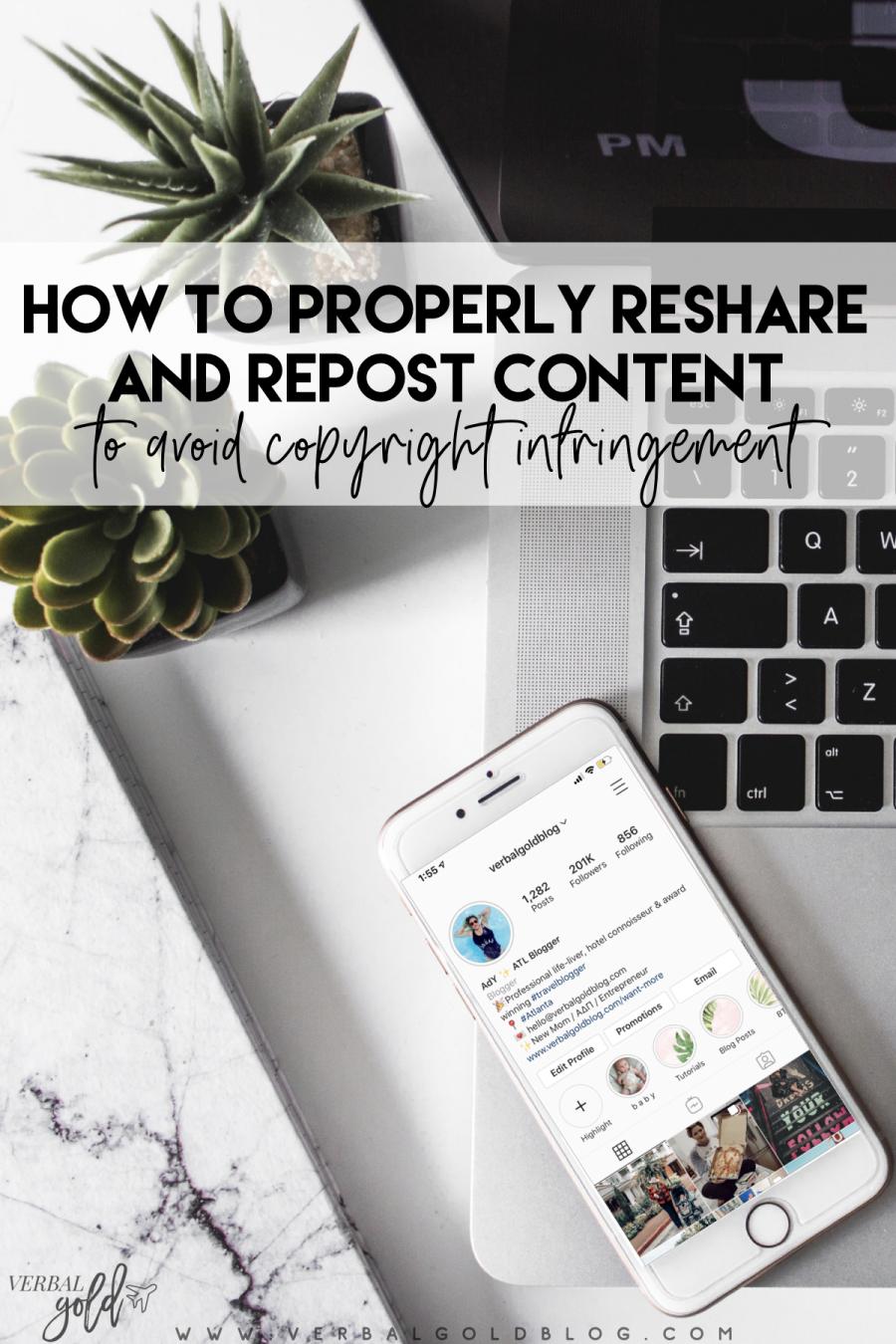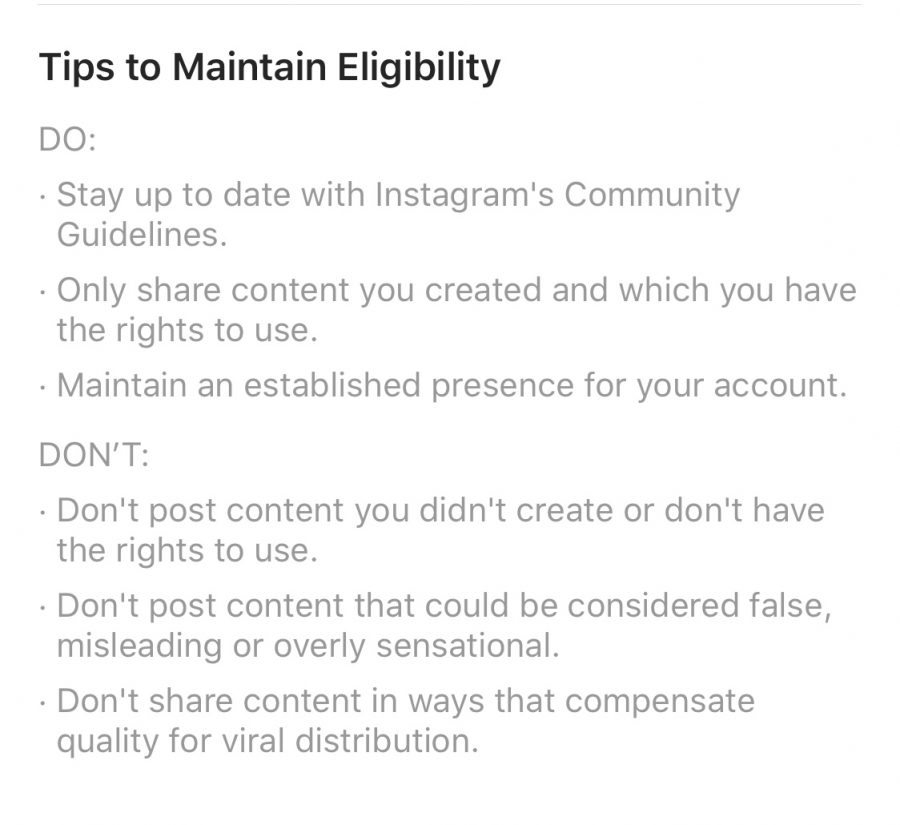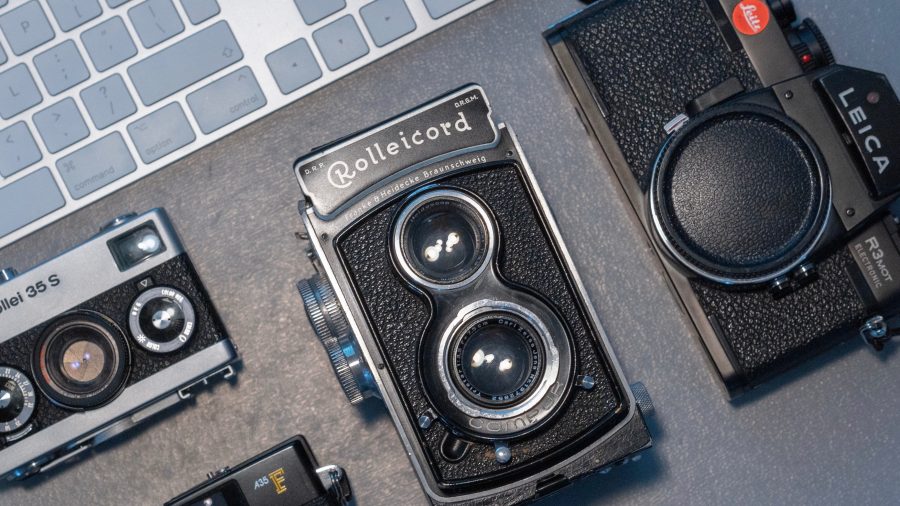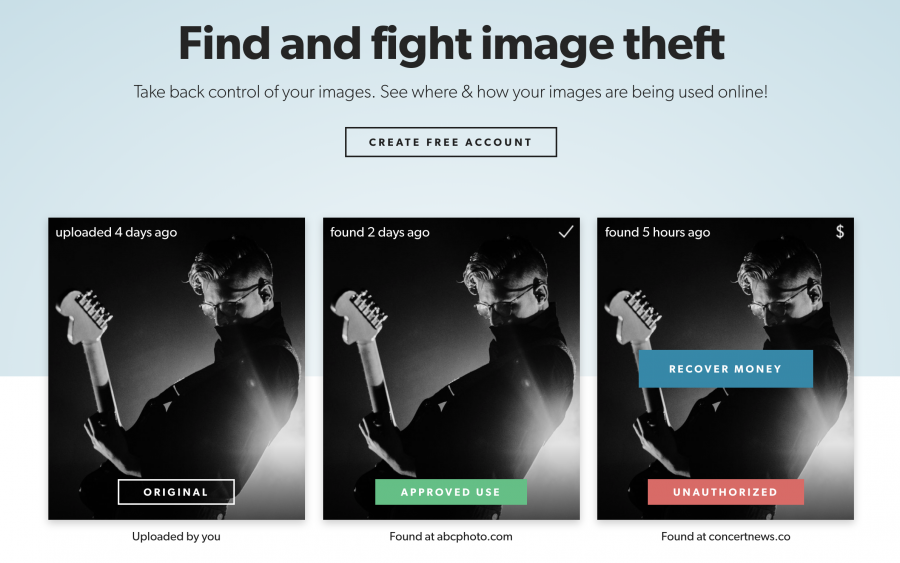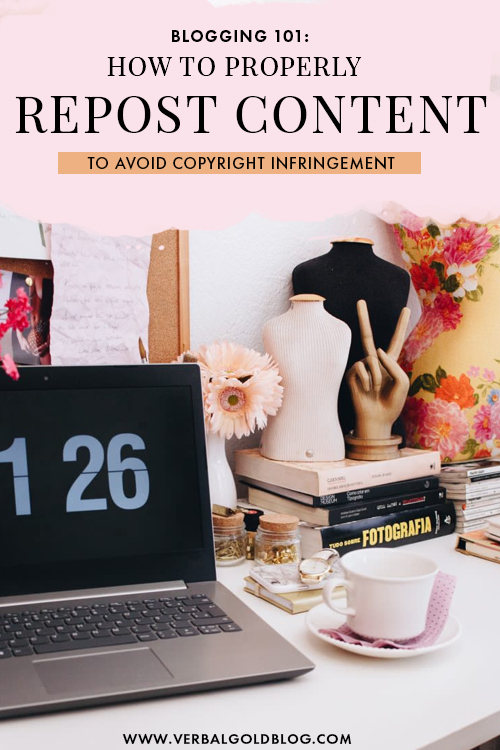
How To Properly Reshare and RePost Content To Avoid Copyright Infringement + What To Do If Your Content Gets Stolen
How to repost content legally and ethically:
The job of a blogger, public figure, influencer, is to create content and share it regularly. It’s how we get paid and make a living. It is a ton of work to curate the perfect image so for our work to be stollen (knowingly or not) is frustrating. In this post, we’ll share how to repost content legally and ethically.
Let’s talk about stealing content resharing content, shall we? I want to address this topic because mine and others content has ended up on websites, ads, banners, business cards, and other people’s social media pages before without receiving proper credit or even being asked. I spotted my blog friend on a billboard once and she had no idea. That’s insane. It happens to my blog friends almost once a week (that we know of). Every time we attempt to correct the situation by reaching out to the brand, business, celebrity, or account and asking for proper credit we’re usually met with anger, entitlement or silence followed by being blocked.How rude! Some people do the right thing and take it down or credit the photo, but not always. So I’m writing this post to educate everyone on the proper way to reshare content.
The ease of sharing on social media, combined with a lack of knowledge around what counts as copyright infringement, means people’s work is often used without their permission. There’s a good chance you’ve infringed on someone else’s copyright on Instagram, without even realizing it. – Refinery 29
I’m sure I have too. I’m not perfect, but I’ve learned along the way. Back in the day, I don’t think this was as well known, or maybe my photos weren’t good enough to take. But since internet usage and content sharing are increasing there are rules in place that everyone must follow.
Let me start off by saying that as content creators, we know our rights. So it’d be great if people who ran businesses or at least their social channels knew them as well. If you’re running a business you need to educate yourself on the correct ways to operate on certain platforms and how to reshare content legally. You can’t blame it on an intern or say you didn’t know. Just google it. A business owner actually told me that once I post the photo to Instagam it belongs to Instagram and anyone can use it. That is just not true. “Paragraph #1 of Instagram’s Terms of Use under the Rights section states: Instagram does not claim ownership of any Content that you post on or through the Service.” Don’t believe me, check out Instagram’s copyright help center for this exact thing.
The same thing goes for Google images. Regardless of where you “find” an image. You cannot take it, alter it, or share it without permission. PERIOD. It’s referred to as Copyright Infringement and it’s illegal. You risk getting sued and could be required to pay the actual dollar amount of damages and profits. The law provides a range from $200 to $150,000 for each work infringed. Infringer pays for all attorney fees and court costs. You could also risk having your social media account suspended or deleted.
Just because someone’s social media profile is public does not mean you can take their images. If I post a picture to Instagram, I still own that photograph. It belongs to me. I’ve granted a very broad license to Instagram to use that photo on their platform but ultimately I still get to control how the photo is used which includes where it’s shared, how it’s shared, and who can share it.
For most content creators, our goal is to have our work shared. We’re honored when big brands, celebrities, and businesses share our images. We just want to be properly credited or compensated. That way it benefits both parties. It’s not hard to properly credit a photo. It doesn’t take away from the message of the post. If Ellen DeGeneres can credit her photographer 11 years later then you can too!
It’s a win-win. Brands get free content and the creator gets credit for their work. Ultimately it’s like street cred. Sharing a creator’s work means it’s good enough for a big brand which can potentially get us more followers or hired for more projects. It expands our reach plus it’s flattering. In my opinion, if you properly credit a photo, you’re much less likely to be met with a copyright infringement claim. Regardless, you still don’t own the photo and need permission to reshare or use it in any capacity, so let’s talk a bit more about how to reshare content properly.
If you follow me on Instagram, you might remember that I got trolled…HARD…for this very thing. I posted a photo on IG and the owner took it and used the photo of me with my SON (a minor) without my consent. As a company, that can get you into big trouble. I asked the owner of the account to credit me (meaning I told her it was okay to keep the photo up with proper credit) and was met with anger and entitlement, claiming they now owned my photo. Which is incorrect. The owner cussed me out, posted my address online in a large entrepreneur FB group, and asked people to attack me after making some absurd accusations. Simply because I asked that they credit my photo. Not a great way to run a business.
This might be a stretch but go with me here. To illustrate my point here’s a quick example. In other businesses are you allowed to steal people’s work without compensation? Think about that. If you see a painting, are you allowed to take it? No! If you want a sub sandwich can you just take it? No. If you love a designer bag or piece of clothing can you take it? No. If you hear a song you like can you copy or cover it and reshare it as your own…as an original? No! So why would photographers or writers work be any different? When you wrote a paper in school and you quoted someone you had to properly cite your sources. Same deal goes when resharing content online.
What counts as copyright infringement? What does this include?
This includes any and all work you did not create. This is not limited to just photos. It also includes quotes, text, articles, graphics and more. I’ve had people steal graphics off of my website, edit them, post them and then tag me. That is not okay.
So for the people in the back, you cannot repost or reshare any content that does not belong to you or that you did not create without first getting permission. Only post content you have the rights to.
Please do not take a photographers work and photoshop the image or edit it in any way. This just happened, once again, and the photographer asked that the photos be removed and the owner said no. That is copyright infringement and can cost you tons of money if you ignore these cases and don’t learn how to repost content properly. I don’t know how people became so entitled to another person’s work. It’s insanity.
How to NOT properly credit and reshare work
1.#agree
Commenting on our photos with #agreeblahblah is not a proper way to ask to reshare content or sneak in hidden terms and conditions. It’s a pet peeve of mine actually because the terms and conditions that are attached to that little hashtag are heavily skewed towards the business.
Most of those #agreeblahblah include terms and conditions that the company will own the copyright to your photo forever and can use it however they wish including altering the image. Think about the possibilities there for a minute. When a company asks for the copyright to our content to use it however they please is just rude. Unless they’re willing to pay for the work. Content creators are happy to sell licensing or limited usage rights but rarely ever give away the copyright (ownership of said work) for free. We use our work to generate income. If you’d like to properly share our content, ask to share it, and share it with proper credit. I’ll teach you how. No hashtags with hidden terms and conditions needed.
Read Next: How To Negotiate Brand Contracts For Bloggers + Influencers
2.taking the photo without asking
3.resharing the content on your social channels without tagging the image or tagging the creator in the caption
4.using the photo in an email newsletter, online, on your website, in advertising materials, or any social channels without asking, paying, or crediting the creator
5.taking the photo and then blocking the creator
6.taking the photo and adding a filter
7.taking the content and remaking it to fit your brand colors without crediting the creator
8.taking the photo and altering it in any way
If you’re laughing at any of the above because they seem crazy, think again. Each one has happened to either myself or a blog friend of mine. Recently. It’s 2019 and we all know the right thing to do here.
What is proper credit when resharing/reposting content
Proper credit is defined as tagging the photo and crediting the creator in the caption after you’ve gotten permission from the creator to reshare the photo.
How to repost content and credit appropriately:
First things first, ask the creator if you can share their work and specifically state where! A creator will most likely let you reshare their content on social media but if you’re looking to use it in advertising or on your website then that’s another story.
After you get permission to reshare the photo on your social media, post the photo (WITHOUT ALTERING ANYTHING). This includes filters. Do not for any reason add text overlay, a shitty filter, photoshop colors, or any other additional edits to the original work. Then, tag the photo with the creators handle. Finally, in your caption, you must include credit and tag the creator. For example, photo credit: @verbalgoldblog, cc: @verbalgoldblog, credit: @verbalgoldblog, photo by: @verbalgoldblog. Any of those will do.
Make sure to follow this golden rule to be respectful of people’s work.
But I need content, where can I find it?
Sites like unsplash are great because they offer free photos like the one above and credit is not required. You can also buy stock photos, hire photographers to take photos of your business, hire an influencer/blogger to create content for you, or create content yourself.
We will find you so better safe than sorry!
Now that you’ve been educated on how to repost content, please think twice before just nonchalantly taking someone’s work and reposting it as your own. Thanks to sites like Pixsy, content creators can now easily find stolen images and recover damages. Pixsy takes care of everything for you.
What Else Can You Do?
- If you or your client are the holder of a trademark that you feel is being infringed upon via a registered domain name you are advised to consider a UDRP dispute.Main UDRP Bodies:
*National Arbitration Forum – adrforum.com.
*World Intellectual Property Organization (WIPO) – wipo.in
*Asian Domain Dispute Resolution Centre (ADR) – adndrc.org
* Czech Arbitration Court (CAC) – adr.eu
* Resolution Canada – resolutioncanada.ca2. If you are a copyright holder and believe your rights are being infringed, we recommend you file a DMCA complaint with the hosting provider of the associated web site.
https://www.whoishostingthis.com/resources/dmca/
3. If you want to report a phishing case, please follow these steps:
To create a case:
1) Visit new[dot]namesilo[.]com[/]phishing_report[dot]php
2) Fill in the domain URL
3) Complete required information and click “Continue”.4. To report SPAM/SCAM please contact the hosting provider:
This can be done by the hosting company of the website, which you can look up on this website: https://www.whoishostingthis.com/
Once you know the hosting provider, please look up their company information and contact them with the case.
You can also use the following pages to report the website:
Malware: https://safebrowsing.google.com/safebrowsing/report_badware/
Scam and Fraud: https://secure.nclforms.org/nficweb/OnlineComplaintForm.aspx
Whois inaccuracy you may report here: https://forms.icann.org/en/resources/compliance/complaints/whois/inaccuracy-form
You may also discuss the case with your local law enforcement officer to seek help.

